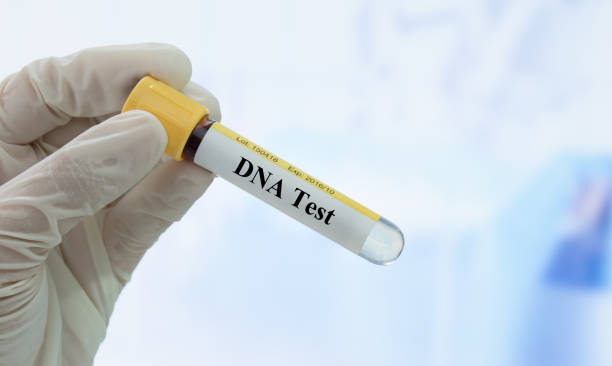 This case drives home the important reality that sometimes the justice system punishes innocent people, but also shows that in the end true justice can prevail.
This case drives home the important reality that sometimes the justice system punishes innocent people, but also shows that in the end true justice can prevail.
Plaintiff-Appellee Darrin Hill was accused of being a rapist and kidnapper, but turned out to be a victim of the criminal justice system rather than a criminal needing justice, as DNA exonerated him nearly 20 years later. So, what can happen next after DNA exonerates you from a crime?
In the 1990s, a couple (names redacted for privacy) was assaulted. The boyfriend was forced off at gunpoint and the girlfriend brutally raped. With little evidence at the time, the police relied solely on an unknown notebook left in her car that included the name “Darrin Hill” and an address. While the address itself was unoccupied, police now know that the adjoining apartment was being rented out by the sister of who is now known to be the real rapist. The Detective had canvas the area around the apartment which included a car that matched the getaway car from the day of the crime, but did nothing with this information.
Relying solely on the fact his name was in this notebook, the police arrested the Plaintiff-Appellee, Darrin Hill. Though Darrin Hill did not match the size, age, or weight initially described by the victims, they later picked him out of a police lineup. Whether they were coerced or if this just shows how unreliable lineups are for identifying criminals is unknown.
Mr. Hill was found too insane to stand trial, but remained in state custody for several years. He claimed innocence and tried to suppress evidence of the identification to no avail. In 1999 he was finally tried and found innocent by reason of insanity, but was kept in state custody due to being found criminally insane. In 2012, DNA evidence proved it was in fact a man named Derrick Woodberry that was the true rapist, so Hill was released.
Soon after, Hill and his Mother brought a 1983 claim against the City of New Orleans, and all the Officers and supervisors involved, stating their actions violated his rights under the First, Fourth, and Fourteenth Amendments, as well as Title II of the Americans with Disabilities Act and several Louisiana State claims. His mother also claimed loss of consortium and loss of her right to familial association.
The Defendants filed for summary judgment on the basis of qualified immunity, arguing their job protected them from liability. It was granted for everything except the fourteenth amendment claims and state law claims.
The trial court stated Hill had provided insufficient evidence to support a 14th amendment claim, noting that there was no evidence of an unduly suggestive police lineup or any suppression of evidence.
The Defendants instantly appealed, seeking review of the decision to now grant full summary judgment.
The appellate court reviewed it, clarifying that the denial of a summary judgment for a qualified immunity claim only allows them to review the materiality of the facts, not whether the facts are genuine. Freeman v. Gore, 483 F.3d 404, 410 (5th Cir. 2007).
The appellate court noted that the entire analysis of the district court only discussed Detective Carter, even though there were many other named Defendants. They noted that for a qualified immunity analysis, every individual officer’s behavior must be analyzed separately. Meadours v. Ermel, 483 F.3d 417, 422 (5th Cir. 2007). There has to be evidence that ties each specific person to misconduct for that person to be charged, not just some tangential relationship.
Because the district court only analyzed the qualified immunity claim for Carter, the appellate court remanded the case back to district court to further decide if the other Defendants are entitled to summary judgment. For Carter, they dismissed his appeal, as they found the district court provided ample analysis on why they were denying his summary judgement.
Additional Sources: Hill v. New Orleans
Written by Berniard Law Blog Writer: Joe K
Additional Berniard Law Firm Articles on DNA evidence: Caddo Parish School Board Held Not Liable for Sexual Assault Involving Students
 Louisiana Personal Injury Lawyer Blog
Louisiana Personal Injury Lawyer Blog

